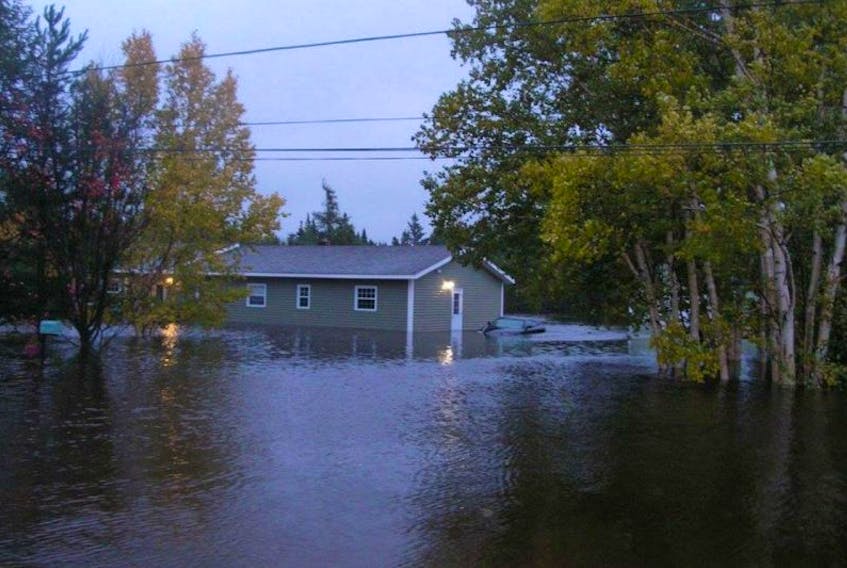The title is long, the summary for policy-makers is longer, and the report itself is, simply put massive.

And, frankly, it’s massively depressing.
It is the “Intergovernmental Panel on Climate Change (IPCC) Special Report on the Ocean and Cryosphere in a Changing Climate.” It was released on Wednesday in Monaco. Basically, it’s an analysis of the already-occurring impacts of climate change in polar regions and in the ocean.
And, in case you’ve been getting your climate change information from cranky Uncle Frank who has never found a single anti-climate-change article he wouldn’t send you in an all-caps email, this report has a pedigree.
In all, it involves 104 climate specialists from 36 countries working as editors — with references to 6,981 individual scientific reports — 31,176 comments from expert reviewers and governments in 80 countries. It’s thorough, and more than a little complex in parts; everyone speaks their own shorthand when they’re deep in an area of specialization.
Here’s a smattering of the highlights (lowlights?) from just one chapter of the report:
• “Anthropogenic climate change has increased precipitation, winds and extreme sea level events associated with a number of observed tropical-and extra-tropical cyclones.
• “Marine heatwaves, periods of extremely high ocean temperatures, have negatively impacted marine organisms and ecosystems in all ocean basins over the last two decades, including critical foundation species such as corals, seagrasses and kelps.
• “Climate change is modifying multiple types of climate-related events or hazards in terms of occurrence, intensity and periodicity. It increases the likelihood of compound hazards that comprise simultaneously or sequentially occurring events to cause extreme impacts in natural and human systems. Compound events in turn trigger cascading impacts.
• “Marine heatwaves will further increase in frequency, duration, spatial extent and intensity under future global warming …pushing some marine organisms, fisheries and ecosystems beyond the limits of their resilience, with cascading impacts on economies and societies.”
What motivates people to ignore clear scientific facts?
Here’s the shortest version possible: there is clear evidence of sea level rise, increases in storm intensity, permafrost melting, massive loss of Arctic and Antarctic ice and snow cover, increases in ocean acidity and decreases in ocean oxygen levels. Humans and scores of other species, both marine and polar, are already being affected, and will be more strongly affected by every single year that we don’t do anything.
But sometimes, the simplest message is the bluntest: here’s Jack Kohler of the Norwegian Polar Institute, talking to Sky News in Britain: “This is unprecedented. It is increasing sea level and that will continue and accelerate in future. …What happens in the Arctic doesn’t stay in the Arctic. … Don’t buy oceanfront property.”
Or, in slightly more technical language from the report: “Global mean sea level is rising, with acceleration in recent decades due to increasing rates of ice loss from the Greenland and Antarctic ice sheets as well as continued glacier mass loss and ocean thermal expansion. Increases in tropical cyclone winds and rainfall, and increases in extreme waves, combined with relative sea level rise, exacerbate extreme sea level events and coastal hazards …”
And did I mention it’s speeding up?
“Mass loss from the Antarctic ice sheet over the period 2007-2016 tripled relative to 1997-2006. For Greenland, mass loss doubled over the same period.”
Of course, Uncle Frank has read all of six of Rex Murphy’s columns trashing environmentalists and is certain everything will be just fine: “He sure told them.”
What motivates people to ignore clear scientific facts? All I’ve got to offer is a Polish saying: “Not my circus, not my monkeys.”
Also, as a footnote of course, Frank’ll be long dead and buried before the chickens really come home to roost. I hope the graveyard doesn’t flood.
Russell Wangersky’s column appears in SaltWire publications across Atlantic Canada. He can be reached at [email protected] — Twitter: @wangersky
MORE FROM RUSSELL WANGERSKY









